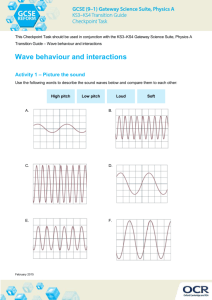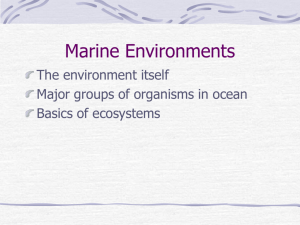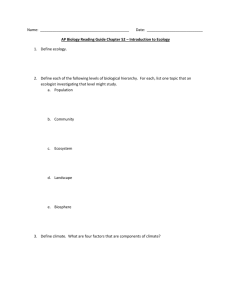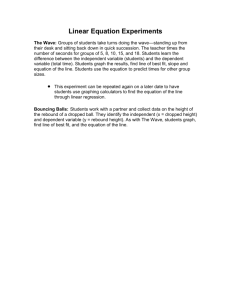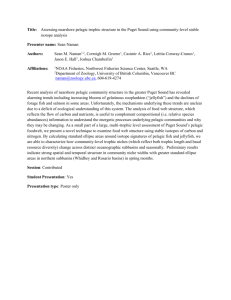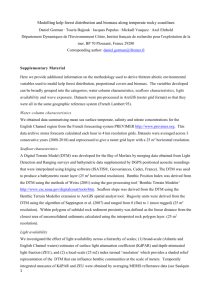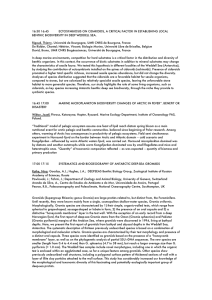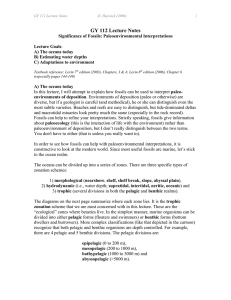Study Guide
advertisement
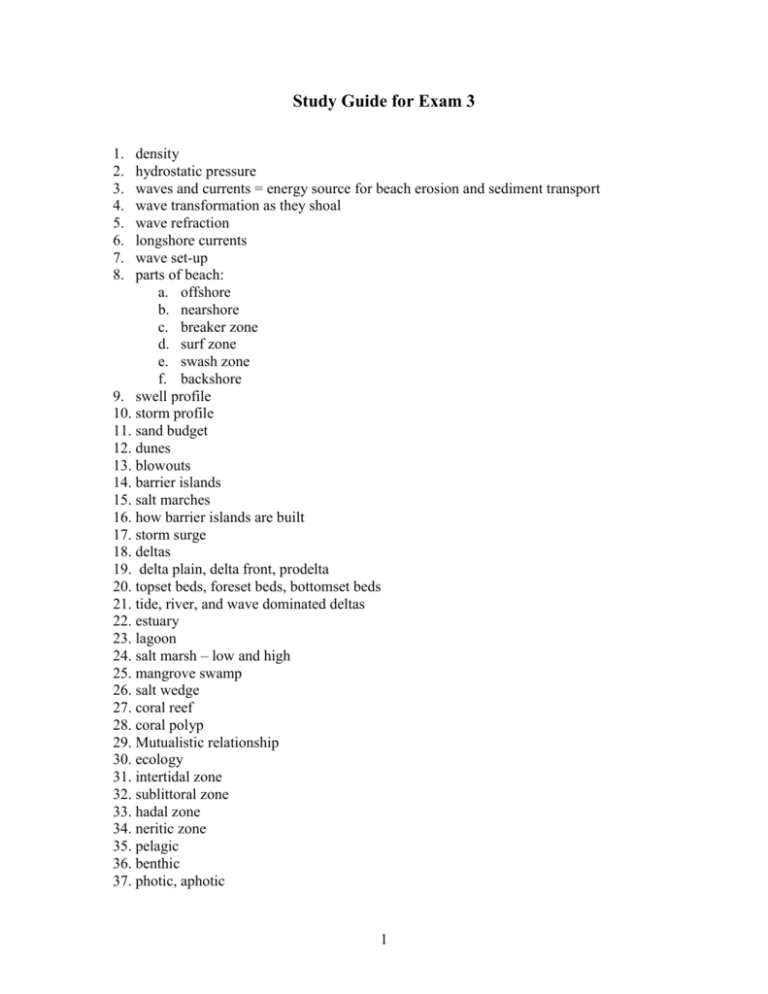
Study Guide for Exam 3 1. 2. 3. 4. 5. 6. 7. 8. density hydrostatic pressure waves and currents = energy source for beach erosion and sediment transport wave transformation as they shoal wave refraction longshore currents wave set-up parts of beach: a. offshore b. nearshore c. breaker zone d. surf zone e. swash zone f. backshore 9. swell profile 10. storm profile 11. sand budget 12. dunes 13. blowouts 14. barrier islands 15. salt marches 16. how barrier islands are built 17. storm surge 18. deltas 19. delta plain, delta front, prodelta 20. topset beds, foreset beds, bottomset beds 21. tide, river, and wave dominated deltas 22. estuary 23. lagoon 24. salt marsh – low and high 25. mangrove swamp 26. salt wedge 27. coral reef 28. coral polyp 29. Mutualistic relationship 30. ecology 31. intertidal zone 32. sublittoral zone 33. hadal zone 34. neritic zone 35. pelagic 36. benthic 37. photic, aphotic 1 38. Monera and examples 39. Metazia and examples 40. Protista and examples 41. Chordates and examples 42. Mollusks and examples 43. Echinoderms and examples 44. Brachoipods and examples 45. arthropods and examples 46. photophore 47. Plankton 48. nekton 49. benthos 50. osmosis 51. diffusion 52. anoxic, hypoxic 53. hydrostatic pressure 54. photosynthesis 55. chlorophyll 56. nutrients for plants 57. respiration 58. pathogen 59. diatoms 60. plankton blooms 61. zooplankton 62. phytoplankton 63. foramifera 64. copepods 65. dinoflagellates 66. surface drag 67. form drag 68. turbulent drag and examples 69. benthic communities response to substrate 70. food chain 71. autotrophs and examples 72. heterotropshs and examples 73. herbivores and examples 74. carnivores and examples 75. decomposers and examples 76. trophic level 77. energy pyramid 78. grazers and examples 79. predators and examples 80. scavengers and examples 81. filter feeders and examples 82. deposit feeders and examples 83. vertical migration 2 84. aerobic bacteria 85. anaerobic bacteria 86. biological oxygen demand - BOD 87. chemosynthetic bacteria 88. eutrophication 89. 2 food chains – grazer and detritus 90. % of energy transferred per trophic level 91. primary production 92. compensation depth 93. nutrients and example and importance 94. importance of upwelling 95. decomposition and importance 96. Law of the Sea 97. EEZ 98. petroleum 99. eutrophication 100. gas hydrate 101. manganese nodule 102. pelagic fish and ground fish 103. maximum sustainable yield 104. overfishing 105. mariculture 106. pollution 107. suore of hydrocarbon pollutants 108. bioaccumulation 109. biomagnification 110. PCB 111. DDT 112. El Niño 3

